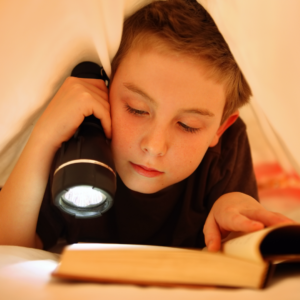Boys and Reading: Encouraging Boys to Read
This post is also available in:  Français
Français
Boys and Reading: Encouraging Boys to Read
By Dr Hannah Snow Baud

A study suggests that during lockdown boys have fallen further behind girls at reading regularly and enjoying it.
Evidence of the gender gap widening and the idea of young males as ‘non-readers’ pops up regularly in education columns. The long-reaching benefits of reading words and engaging with the text successfully provides solid foundations for all learning. Self-led reading, with practise, is one of the primary mediums that can stimulate curiosity and foster exploration of different worlds.
Professionally, as a tutor, I see the immediate positive effects reading has in improving, expanding and refreshing our grasp of a richer language. Spelling, punctuation and grammar improves and vocabulary blossoms. It’s a privilege. But back to reality. As the mum of three very different darling sons, aged 18, 15 and 12, the study prompted me to reflect back on their lack of enthusiasm for reading, the choice of books that were too easy for them, and my suspicion that they were not reading thoroughly or carefully. There will of course be those boys who are voracious bookworms, but for my own family the path was more difficult. How can we encourage our more reluctant young men to engage with reading, whilst remaining realistic?
Experts suggest that the truth is that boys DO read - perhaps on digital gadgets - and that we need to dispel the myth that they don’t read. The difference is that many boys don’t read for enjoyment and the books they choose are often too easy for them. So how can we help?
From my own experience, I have been judgmental about the books my sons read - mostly what I perceived as ‘cheat’ books: lots of illustrations; comic-style content, dumbed-down stories and non-fiction texts. But actually, experts in literacy emphasise that it doesn’t matter. We should work with what boys like; whatever the genre, format or size. Educationalists highlight that we shouldn’t underestimate how much the lack of reading enjoyment is a turn-off for boys. It’s about building and cultivating a good habit of reading. Like all skills, reading takes time and needs practice. Secondary schools don’t dedicate time to reading, so we try to do our best to support them at home, when we have a little energy. We should also raise our expectations of what boys CAN do in terms of reading.
In time, with the gentle nudge towards more ambitious and adventurous prose* - perhaps with a nod towards their need for movement and space as they grow – our boys will improve their reading confidence and stamina, which is a positive habit that will last a lifetime. Finally, by setting good examples as adults – especially from male role models - we normalise and communicate our love of reading at home to our children. This will encourage our young people to see reading not as something they do for others, but a grown-up choice of their own. This will motivate them to see themselves as ‘readers,’ making informed decisions and exploring the world for themselves.
*My boys’ favourite book, without a doubt: the novella, ‘The Body’ by Stephen King (1982), adapted into the 1986 film Stand by Me. Short and adventurous coming-of-age story. Wonderful.
Author: Dr Hannah Snow Baud is an experienced private tutor and coach for children aged up to 18. She specialises in English Language, English Literature, the humanities and building confidence in learning. She is also mum to 5 children aged 12-19.

